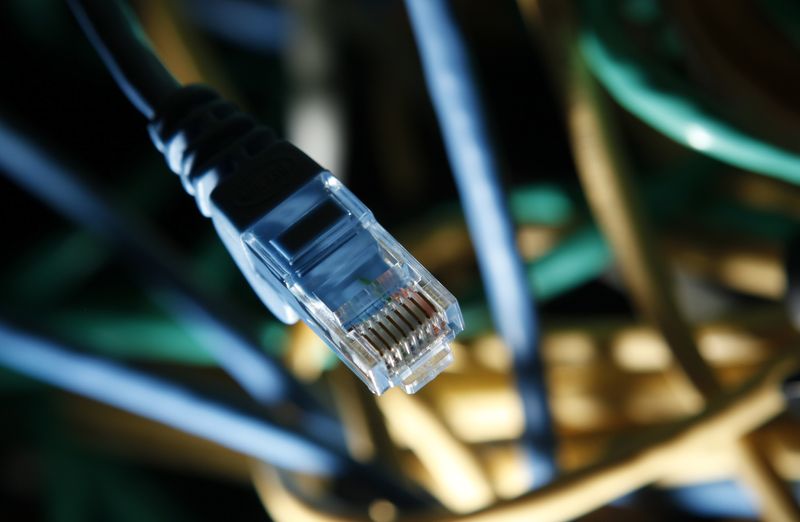By David Shepardson
(Reuters) -A bipartisan group of eight U.S. senators on Monday urged President Joe Biden to order a review of the security of the global network of undersea communications cables that handle nearly all the world's internet traffic.
Nearly all international internet traffic travels on undersea cables and the locations of the cables are often openly published to prevent accidental damage.
"It is imperative that the United States undertake a review of existing vulnerabilities to global undersea cable infrastructure, including the threat of sabotage by Russia as well as the growing role of the People’s Republic of China in cable laying and repair," said the letter, led by Republican Todd Young and Democrat Chris Murphy.
The White House did not respond to a request for comment.
The United States for years has expressed concerns about China’s role in handling network traffic and potential for espionage.
More than 400 subsea cables form the backbone of the internet, carrying more than 95% of the world’s data traffic.
In 2020, Federal Communications Commissioner Geoffrey Starks said the agency "must ensure that adversary countries and other hostile actors can’t tamper with, block, or intercept the communications they carry."
The senators, including Marco Rubio, Brian Schatz, Tim Kaine and Dan Sullivan, said ensuring internet traffic security must be a national priority and raised a number of questions including what is the "administration’s overall strategy to guarantee the security of America’s undersea infrastructure and to promote the security of that of our allies and partners?"
They also asked what is the ideal size of the U.S.-flagged and U.S.-operated cable-laying and repair vessel fleet to ensure sufficient cable repair capacity, and how is the White House working to encourage other nations to choose trusted undersea cable manufacturers.
The Chinese Embassy in Washington criticized the letter, saying international undersea cables are crucial for international communications.
"The letter is turning undersea cables into a political and security issue, which severely disrupts international market rules, threatens global digital connectivity and cybersecurity, and denies other countries, especially developing countries, the right to develop their undersea cable industry and independently choose undersea cable suppliers," the embassy said.
Reuters reported last year the State Department and its partners had helped to prevent China from obtaining new subsea contracts in foreign places of U.S. strategic interest, while other U.S. agencies had prevented any cable from directly connecting U.S. territory with mainland China or Hong Kong over Chinese espionage concerns.

Since 2020, U.S. regulators have been instrumental in the cancellation of four cables whose backers had wanted to link the United States with Hong Kong.
In April, the FCC ordered the U.S. units of China Telecom (NYSE:CHA), China Unicom (NYSE:CHU) and China Mobile (NYSE:CHL) to discontinue broadband internet operations in the United States. In June, the FCC advanced a proposal to boost the security of information transmitted across the internet after government agencies said a Chinese carrier misrouted traffic.
